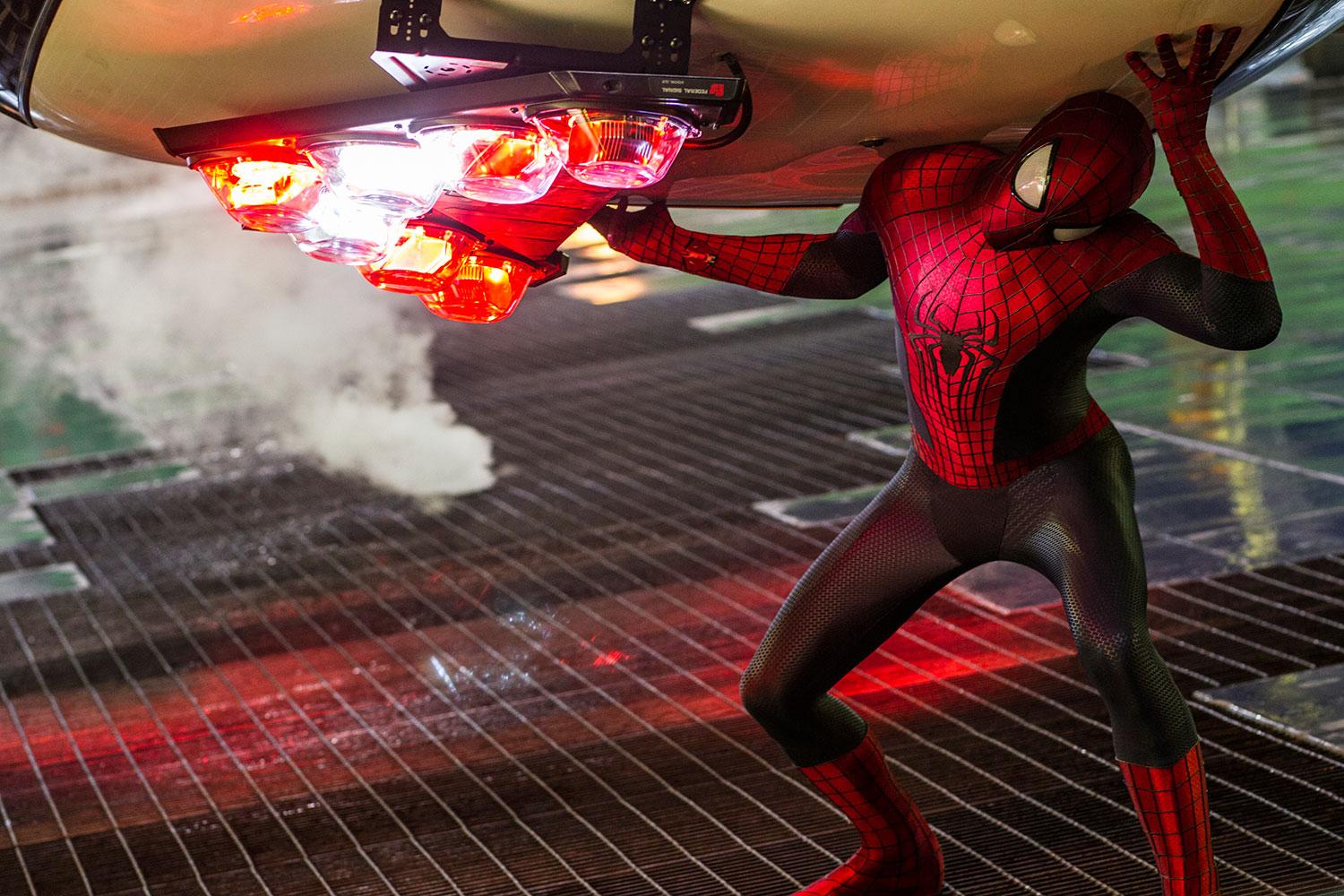The Amazing Spider-Man 2 feels like it’s caught in a Webb.
Indie-darling director Marc Webb made his blockbuster debut with 2012’s uneven-yet-entertaining The Amazing Spider-Man, and 2014’s sequel delivers largely the same results. Fortunately, a strong set of performances from the entire cast and some genuine seat-edging action prevent Spidey from getting snared by Webb’s sometimes-misplaced priorities and an inelegant script.
The sequel picks up in much the same state that the 2012 reboot left things. Spider-Man is an established player in New York City’s crimefighting community. He’s got his share of detractors, including a referenced but never seen Daily Bugle boss J. Jonah Jameson, but most of the public is content to let him do his superhero thing. Spidey’s got no trouble picking apart two-bit thugs and random street gangs, but he meets a new threat on par with the previous film’s Lizard when Electro (Jamie Foxx), another familiar face from the comics, starts wreaking havoc.
The Amazing Spider-Man 2 feels like it’s caught in a Webb.
But Webb’s knack for melodrama just doesn’t feel like a good fit for this superhero story. The most cringe-worthy schmaltz spills out across the film’s easy-to-spoil third act, but eyes roll all throughout the 2+ hour running time. Try to contain your exasperation when a delighted Peter Parker literally clicks his heels to cap off a scene. Or when a slow-mo close-up of Spidey’s slinging web takes on the appearance of a hand as it reaches out to save the day.
Come on.
That’s not the only offense. Too often, The Amazing Spider-Man 2 feels saddled with the questionable need to pad out the future of this franchise. We already know that Sony Pictures has another sequel and a pair of spin-offs in the works, and this story feels crowded with those dangling threads. Payoffs may wait in the future, but all the forward looks don’t do the present-day story any favors.

Character development ends up being crowded out by the seeds of future movies, especially with regard to the newcomers. Electro’s baffling leap from Spider-Man admirer Max Dillon to creepy stalker to vengeance-seeking sparkplug screams for more attention. Same goes for Harry Osborn’s (Dane DeHaan) arc, that concludes – as marketing so pointlessly spoiled – with his Green Goblin transformation. Webb sells Osborn’s friendship with Peter in their too-brief handful of scenes together – again, relationships are his thing – but the human side of the future Green Goblin feels underdeveloped.
While this central character can’t seem to find enough screen time, Webb somehow finds room for lengthy chunks of backstory that needlessly explore what happened to Peter’s parents. For instance, the movie opens with – and stumbles around – a flashback that isn’t at all necessary to the later payoff it informs. The senior Parker’s story is plays an important role in the larger universe, but it’s hard to justify building a long-dead character when so many of the living ones feel flimsy and one-dimensional.
Webb’s knack for melodrama just doesn’t feel like a good fit for this superhero story.
Outside these web-slinging set pieces, we get to see a lighter side of Peter Parker’s personality than we saw in the previous film. The man behind Spider-Man has his tortured moments, but he’s always been a sly, fast-talking goofball who excels at the art of the one-liner. Garfield inhabits Peter even more effectively than he did before, and his natural comic timing sells everything that fans love about the character.
In some ways, this is an exciting start, a first step into a film universe that feels richer and more grounded than anything Sam Raimi ever concocted. That’s a good thing, since we’re going to be living with these characters for the stretch of years to come. But the execution is inelegant. Like so many broken strands in a spider’s web, uneven plotting and a thick layer of cheese smothering everything diminish the sharp action and convincingly drawn relationships in Webb’s tangled tale.
(Media © Sony Pictures Digital Inc.)






